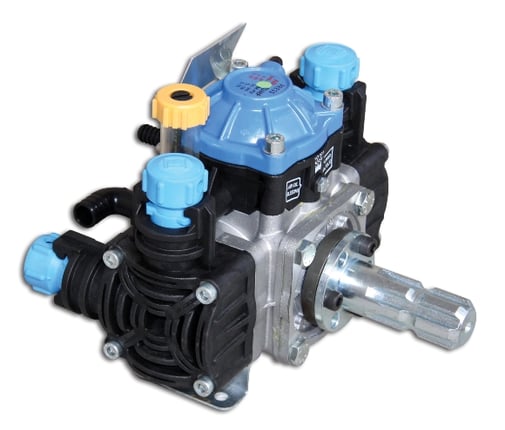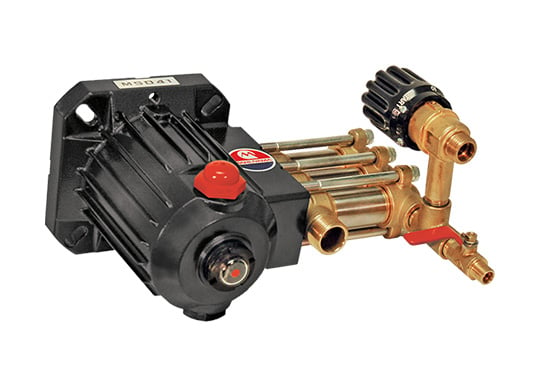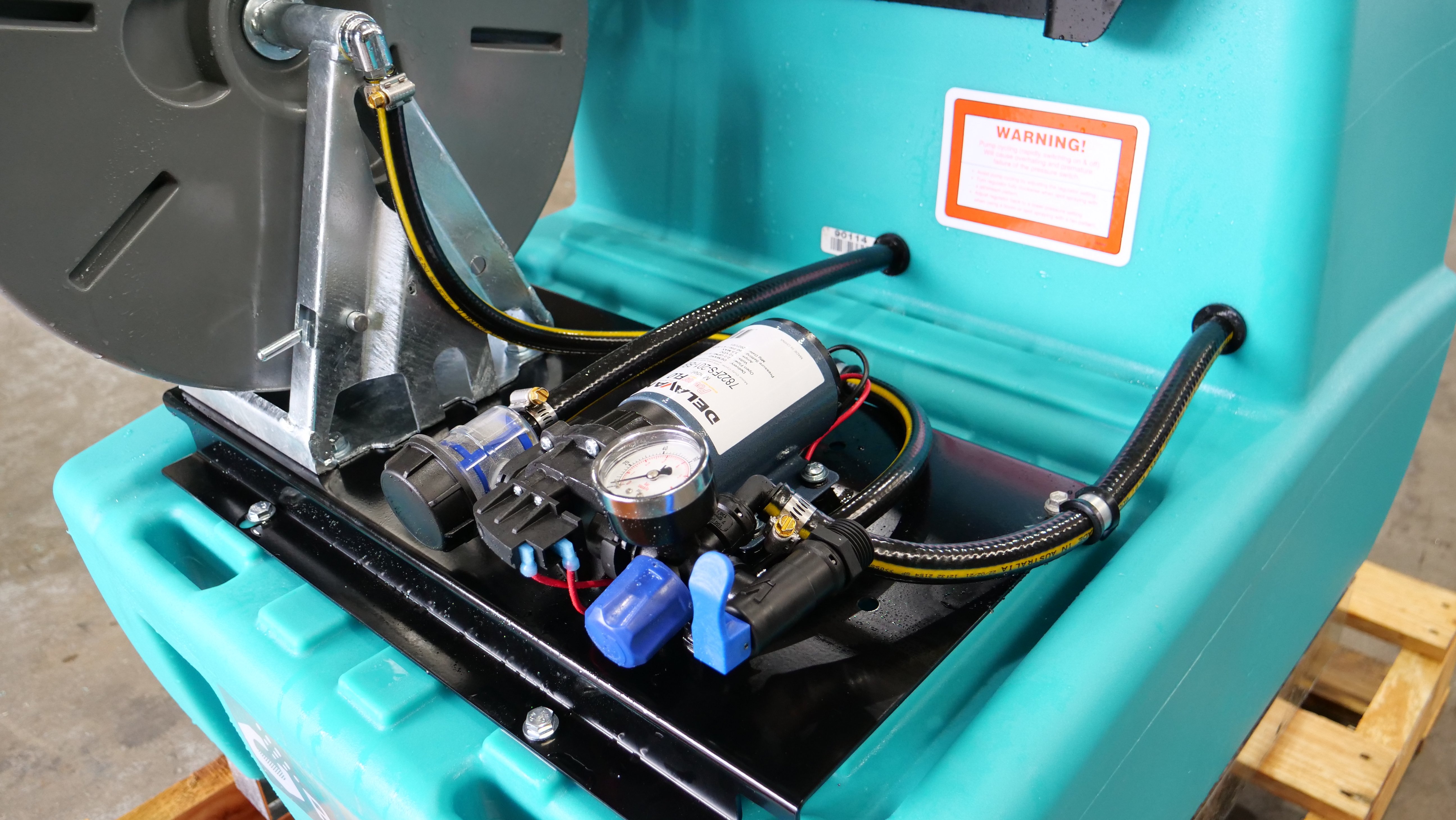Looking for a spray pump? With the large variety of options available, it can be a bit overwhelming if you don’t know what you’re looking for. Whether you are looking to purchase a new sprayer, or replace a pump on your current one, after narrowing down your choices the question that will eventually come up is: Piston or Diaphragm? With some forward planning you can find the right purchase for you and get the best out of your investment.
What are diaphragm and piston pumps?
A diaphragm pump is exactly what it sounds like: A diaphragm held inside of a housing shell, which expands and contracts to create pressure. Water is sucked into the diaphragm on the expansion through an inlet valve, and pushed out on the contraction through an outlet valve.
Diaphragm pumps excel at reliable, durable pumping, for a large variety of liquids.
A piston pump features one or more cylindrical chambers, inside which moves the piston itself. The pull of the piston draws water into the chamber, just as the push of the piston forces the water out the outlet.
Piston pumps excel at consistent pressure, and high performance for long periods of time, though they’re not as good with viscous fluids.
How else do they differ?
While both will pump liquids at similar litres/minute, you’ll see the real difference in durability vs. performance. The reason for this is the difference in their makeup – A diaphragm pump is flexible, it has some give to it, and as a result they’re able to survive some beating and misuse. A diaphragm pump will also be able to handle less than ideal spraying liquids, whether they be more viscous or granular than most normal chemicals. The downside you’ll see from this is the performance a diaphragm is designed to operate at will never be the performance you get out of it, as flexibility means compromise – resistance will push back harder on a flexible component than it will on an unyielding one.

Rapid Spray offers a range of Bertolini diaphragm pumps including the Poly 2020 VF Pump.
A piston by comparison is housed in a cylinder, it has no give and runs at the exact speed and performance it’s instructed to, regardless of resistance. In terms of consistent pressure, (which is what you want in spraying applications) they’ll outperform a diaphragm pump in a side-by-side comparison and can run for much longer. Another advantage of the piston pump is their smaller size; You’ll find them more compact and accessible for routine maintenance. Being unyielding is one of the main reasons why you’ll see such consistent performance, however it can also have its downsides; Where the flexibility of a diaphragm pump can survive tougher use when things don’t go right, the unyielding nature of a piston pump means that errors or damages can cause breakdowns where a diaphragm would not.

The Maruyama 3 piston pump is just one of Rapid Spray's piston pump offerings.
If you have a small space that you need to spray and aren't looking for a bigger spraying unit then Rapid Spray also offers a 15L Pro Series Piston Pump Backpack Sprayer and a 15L Pro Series Diaphragm Pump Backpack Sprayer.
At a glance...
| Diaphragm Pump | Piston Pump |
| Suitable for wettable powders | Suitable for liquid concentrates only |
| Very reliable | Easy to maintain |
| Less pumping effort required | Able to achieve higher pressures |
| Has longevity with harsh chemicals |
So which is the best pump for you?
For that question, the answer comes down to how you intend to use the pump, and which you would value more: durability or performance?
In summary, if your spraying includes dirty water with solid matter, then the flexibility of the diaphragm pump will be for you.
If your preference is for a pump with long periods of high pressure performance, low maintenance and simplistic design, then the piston pump will be the choice to go with.
Find out more
Whichever way you choose to go, both pumps are great at what they do, and can be found on Rapid Spray sprayers throughout our whole range.
If are still sitting on the fence with your choice and have any further questions about which pump is best for your application then do not hesitate to contact the team on 1800 011 000.



